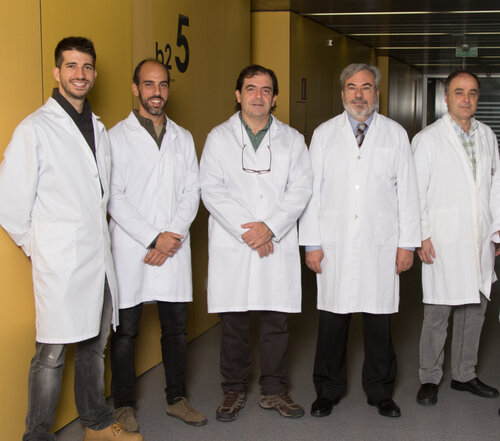An investigation of IRBLleida and UdL identifies 4 genetic variants that demonstrate a connection between personality and mental disorders
The Neurocognition, Psychobiology of Personality and Behavioral Genetics Group from the UdL and the IRBLleida have led the investigation.
In the appearance of mental disorders, genetics plays an important role. Some genes found in the normal personality are also related to mental disorders, according to research carried out by the Neurocognition, Psychobiology of Personality and Behavioral Genetics at the University of Lleida (UdL) and the Institute of Psychology. Biomedical Research of Lleida (IRBLleida), coordinated by the professor of Psychopathology Anton Aluja (UdL). In the human personality there are some characteristics and innate characteristics that, in case of presenting themselves excessively in an individual or under stressful circumstances, can facilitate the appearance of mental disorders. The research has studied 20 genes and 153 polymorphisms of which 4 variants predict the triggering of neuroticism (anxiety, depression, emotional instability) and 4 more predict the search for sensations (antisocial behaviors, impulsiveness, aggressiveness).
The work, which has been published in the journal of the International Society for the Study of Personality Personality and Individual Differences, has been carried out within the framework of a state project financed by the Ministry of Economy, Industry and Competitiveness (PSI2011- 24789). The responsible of the Genetic of Complex Diseases Group and professor of the UdL School of Medicine, Joan Fibla, has also participated in the publication.
Neuroticism is related to brain systems of inhibition and is characterized by a tendency to emotional instability, low self-esteem and to suffer negative emotions, such as anxiety and depression. People with high neuroticism tend to mood disorders such as depression and bipolar disorder, hypochondria, anxiety, anorexia or bulimia nervosa, substance abuse, schizoaffective disorders or identity or dissociative disorders, among others.
While the search for sensations is related to brain systems of disinhibition and is defined as a characteristic of the typical personality of people who like to seek varied experiences and emotions and who are willing to take social, physical, legal or financial risks to live -the. People with a high search for sensations tend to present disorders of substance abuse, pathological gambling, attention deficit, hyperactivity (attention deficit hyperactivity disorder [ADHD]) and antisocial personality and limit.
The aim of the study was to study the 20 genes associated with neuroticism and the search for sensations that best predict the two personality traits, using an analysis of multivariate genetic association. Compared with previous studies, it is considered that the explained genetic variance of the personality variables of neuroticism and the search for sensations is much higher than what was known until now.

20 genes and 153 polymorphisms related to normal personality and predisposition to suffer from anxiety disorders, depression, certain personality disorders, antisocial behaviors and impulsivity, among others, have been studied in healthy subjects.






